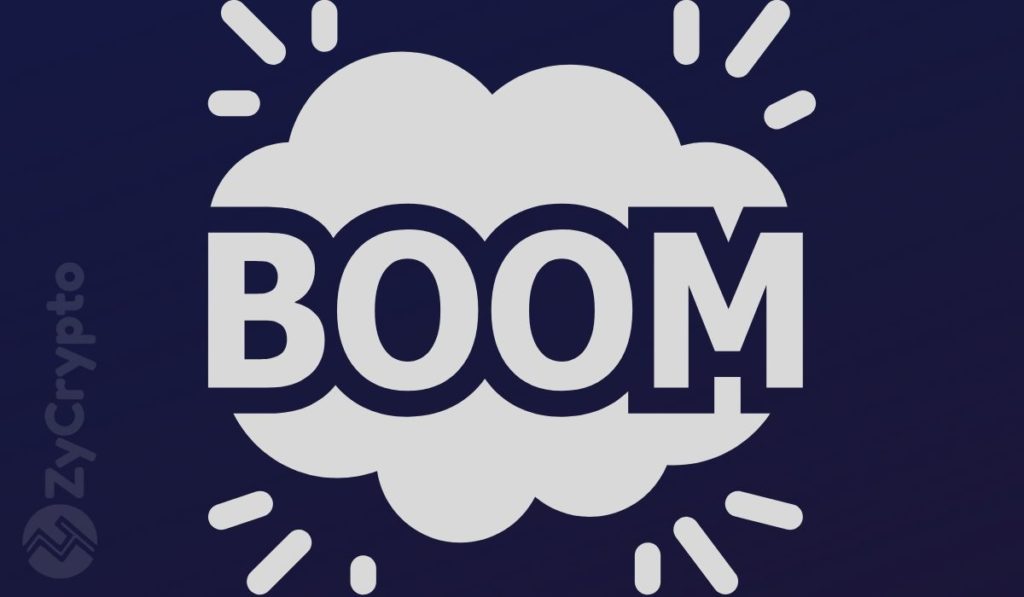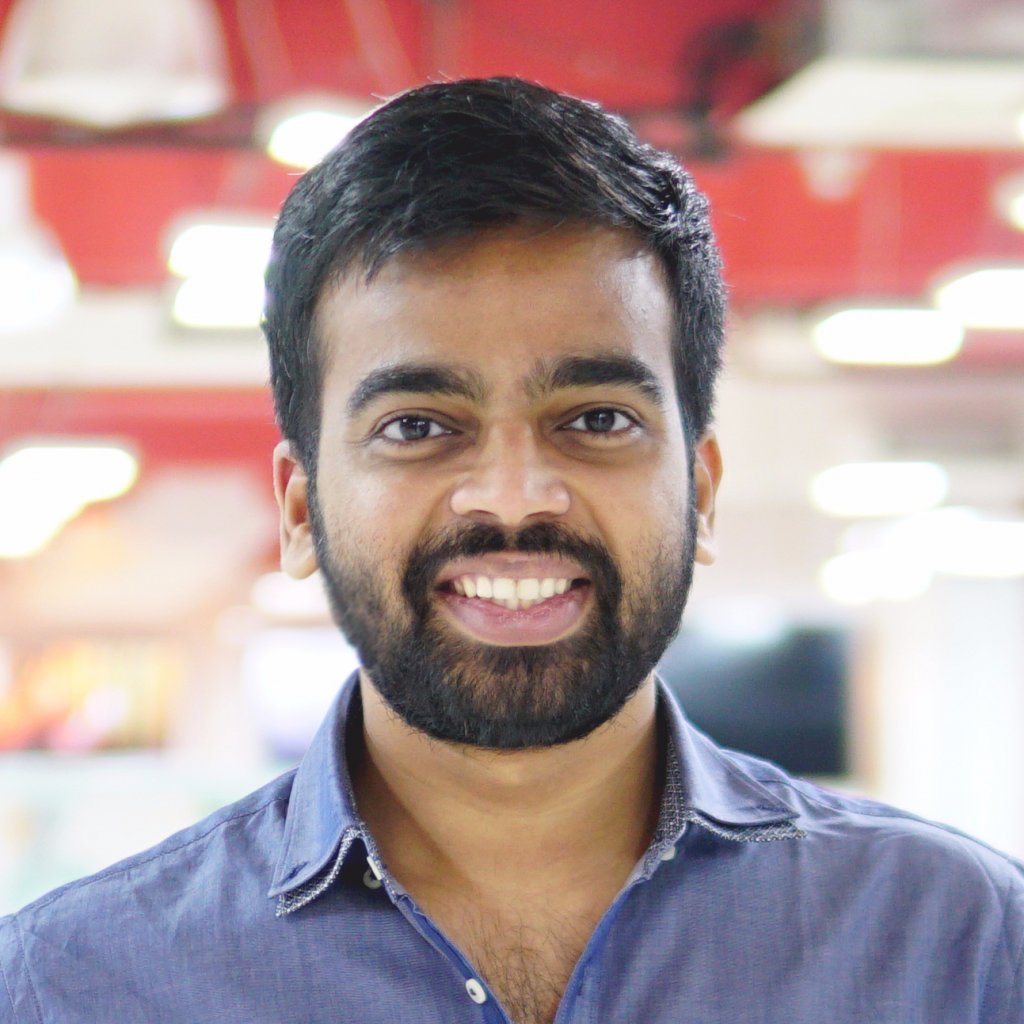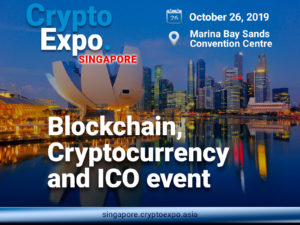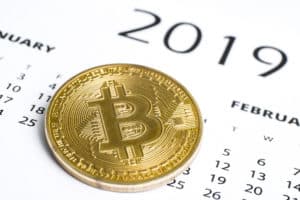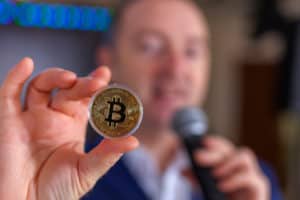2020-11-2 18:43 |
The first time I came across Bitcoin was in 2015, while engaging in my main hobby of surfing the internet. At first I didn’t comprehend how exactly the whole system works, because the concept of Bitcoin and blockchain were quite distinct from other technological phenomena I had learned about in the past.
However, I was extremely interested in learning how this worked, since it was a tech-related concept, and my area of speciality was as a computer science student in university. Going in further, I discovered that blockchain is the core underlying technology behind Bitcoin. This was a major turning point for me, as I was glued to learning about blockchain and the new concepts that revolved around it. I read related articles and watched one YouTube video after another to get started on my fascinating blockchain journey.
In Q1 of 2016, I was introduced to the Mundial Moneybox (MMM) ponzi scheme. As a final year student, I didn’t have much cash on me to invest. Meanwhile the platform spread like wildfire throughout the country, but I wasn’t paying it much attention.
Somewhere down the line, a certain platform presented a BTC investment option with a ROI that was doubled, compared to the NGN (Nigerian Naira) investment. I marveled and tried to secure funds to invest, but all my efforts to to invest was to no avail. At this point, with the knowledge I gathered so far, I realized that BTC would be the next “gold” because it was rare to have a double ROI on that Ponzi scheme, compared to other currencies that were available. I kept on learning about it alongside my academics.
My morale was still high about the tech and that same year, I came across a high-yield investment program (HYIP) platform called BTC Hourly, a Telegram bot. I was able to raise the minimum investment amount, N2,000 and this is what gave me the courage to setup my first blockchain wallet and fund it with my first-ever purchased BTC, which was around 0.00978000BTC, equivalent to about $6.03 back then, at 1 BTC ~ $617 (when $1 conversion rate to naira was 320). However, I wasn’t on the winning side of the investment, as the platform crashed just before my earning time.
After my first attempt that I lost in the investment, I was still much intrigued by the fast growing pace of cryptocurrency, so I started researching how to earn it, either by making valuable contributions or whatsoever. And this is how I found the FreeBitco faucet (a very popular free BTC claim site still existing till date) and many others. I saw myself relent to this method of accumulating crypto as my then smartphone device unnecessarily overheated when running too many applications.
Around mid-2017, I joined the BitConnect lending investment platform which crashed seven months after I joined. I won here though, as I made good ROI in the then BitConnect lending platform. The experience got me started again nonstop till date. This launched me into ICO investments, some of them paid off while others did the reverse. My favourite ICO is IOTA, I was really fulfilled being part of its initial coin offering, made over 300x of my capital. RegalCoin is my least favorite, as the team is nowhere to be found, it was meant to be a lending coin though. I had to empty my bag of the token at a loss. The most important factor I consider then and till now is to ensure that my winnings are far above my losses.
I started learning how to trade crypto on exchanges on Bittrex and Bitfinex. I have been in the space much more during the extremely bullish run of Q3-2017. Towards the end of that year, I started claiming airdrops of cryptocurrency projects, which then was a proven way of enhancing their marketing strategies.
From being an airdrop claimer, in Q1 of 2018, I upgraded to participating in bounty tasks for many blockchain projects, although I do not want to mention their names for reasons best known to me. Little did I know that all of these processes and activities were building me up to becoming a relevant person in the space.
At the initial stage of this journey, family and friends were skeptical, but not anymore as they now have belief in blockchain technology. I’m pretty excited that, due to all of this, a lot of people were being introduced freely by me to blockchain knowledge, crypto trading, earning opportunities and more as I had an active community of blockchain and crypto enthusiasts as a result around me.
In early 2019, I enrolled and learned the technicalities of crypto trading and started working with notable blockchain projects around Q4 as a brand ambassador since I have equipped myself in the past. And today, I’m here as a CoinMarketCap (CMC) ambassador. I’m super excited that this is a reality and in fact it’s such a great pleasure and my happiest milestone at this time. I’m really looking forward to communicating the CoinMarketCap vision and innovations in Nigeria (the Giant of Africa).
Nigerians have become very interested in Bitcoin and cryptocurrency generally. Currently in Nigeria, the younger generation of ages between 18-40 years is the most interested in the blockchain and crypto space. Although it is not fully recognized by regulatory bodies, neither is there a legal action against the use of cryptocurrencies in Nigeria.
Nigerians have trouble sending and receiving payments from foreign customers and clients. In fact, the popularly known PayPal can’t be used in Nigeria. Meanwhile, other payment options such as Money Gram and TransferWise are not only expensive and slow, but also have an inflexible verification process.
The use of blockchain technology in Nigeria is now on the rise as a result of the cryptocurrency innovation that helped to scale businesses and services by leveraging on a more reliable cross border payment system.
Blockchain technology has a more rapid development potential in Nigeria and Africa as a whole, for it’s applicable to our day-to-day life in areas like banking, medical, cross border payments, employment, smart contracts and so on.
Adequate financial education is required in order to aid the increased adoption of blockchain and cryptocurrency in Nigeria, people need to understand the dangers of over-printing money and inflation. The more they understand how money works, the better they would see the relevance of cryptocurrency and, of course, accept it. From my personal perspective, the future of cryptocurrency in Africa has an indisputable potential.
My role at CMC includes but is not limited to these points:
i. Understanding what the CMC users’ concerns and needs are;
ii. Presenting info, resources, tools that helps stay up to date and informed about crypto.
I look forward to seeing more innovations that would erupt out of blockchain in the future and where the discussion takes us.
Thanks for reading! Please feel free to comment or reach out to me if you have questions, I will try as much as possible to get back to you. Connect with me on Twitter & LinkedIn.
The post My Crypto Journey – Helen IMAH, a Nigerian appeared first on CoinMarketCap Blog.
origin »Bitcoin price in Telegram @btc_price_every_hour
Ride My Car (RIDE) на Currencies.ru
|
|



